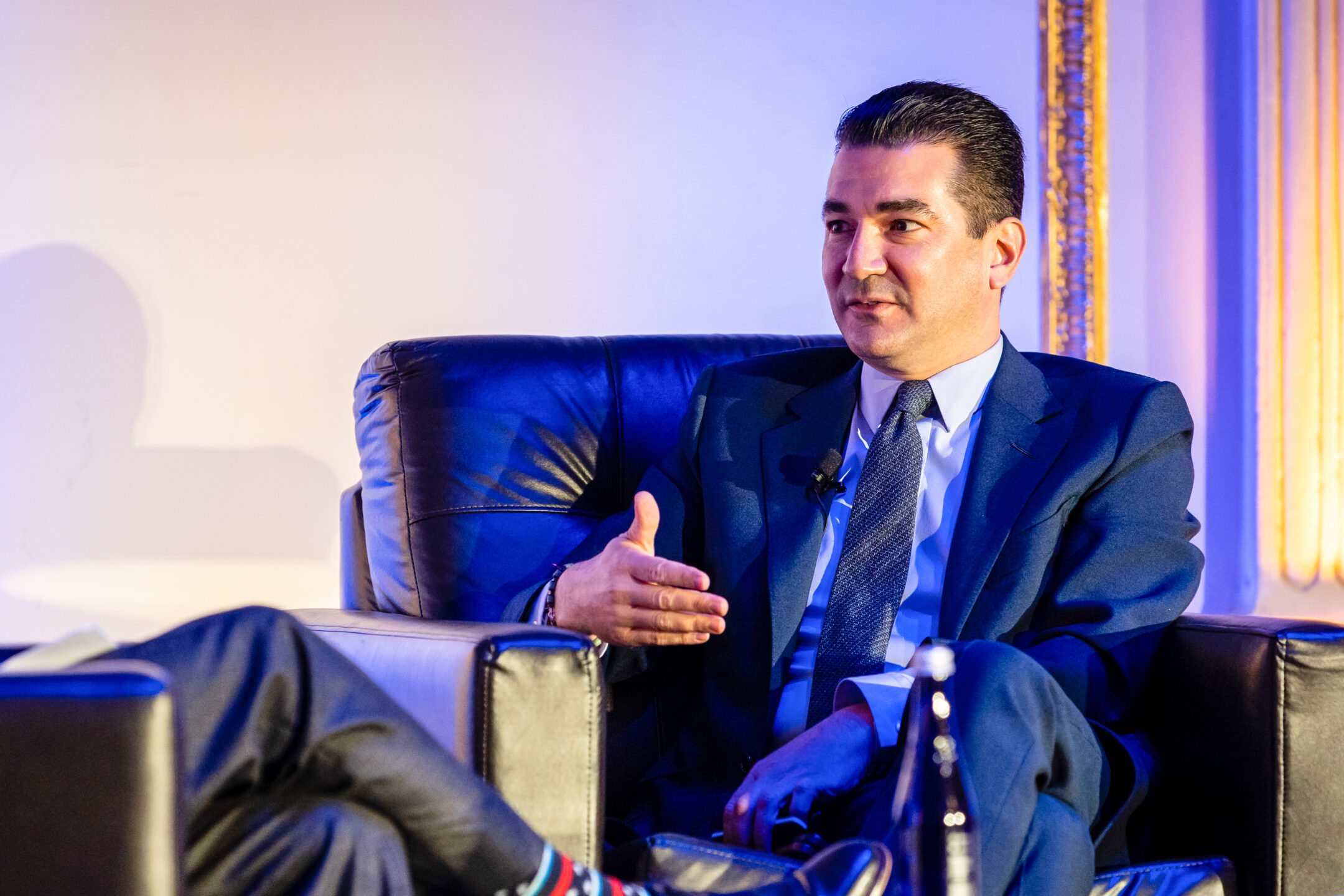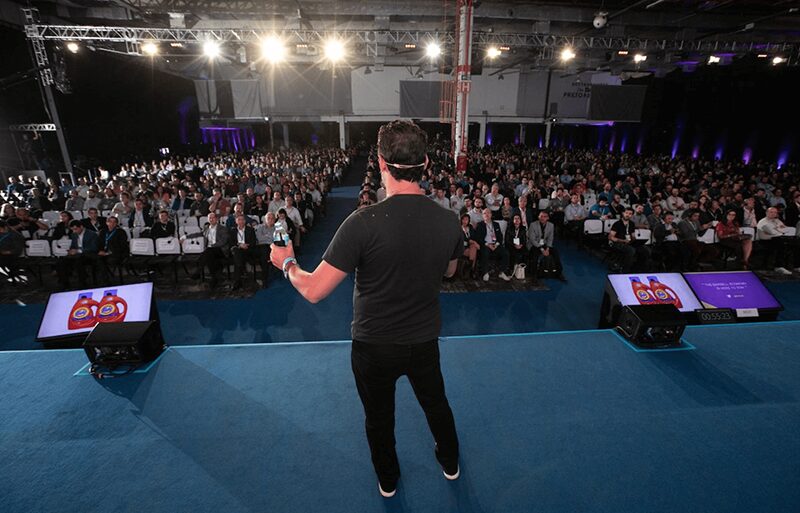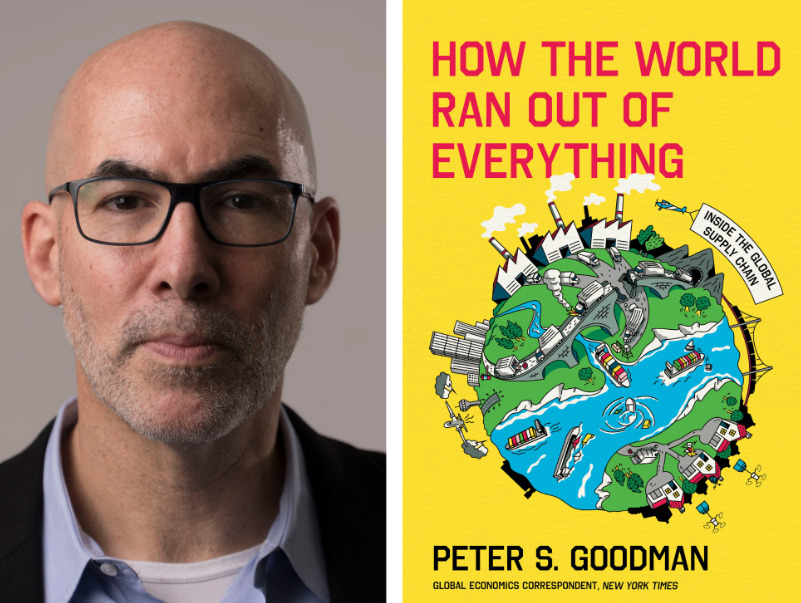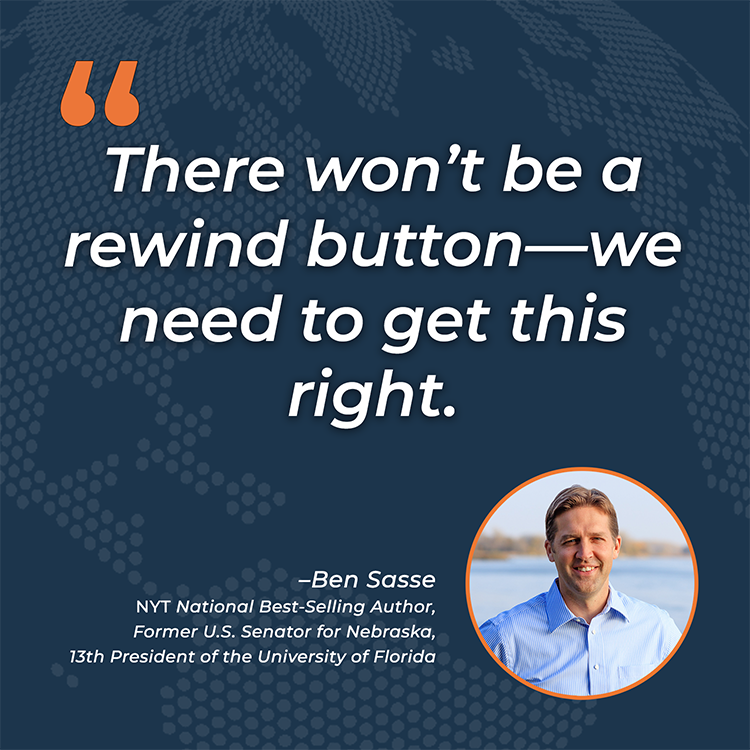AI and Industry Transformation: What’s Next and How to Prepare
Artificial Intelligence (AI) is rapidly transforming industries, redefining everything from disease diagnosis to technological advancements and financial management. AI is no longer just a futuristic concept—it’s a driving force behind innovation.
Why is this important? We believe the answer is best explained by Cassie Kozyrkov, Google’s first Chief Decision Scientist and the founder of Decision Intelligence.
Ms. Kozyrkov’s advice applies to leaders in all verticals. To understand AI’s industry transformation impact, we’ll explore how it is reshaping healthcare, technology, finance, and trade, focusing on real-world applications, benefits, and challenges.
AI in Healthcare: Revolutionizing Patient Care
AI is transforming healthcare, revolutionizing everything from diagnostics to patient care. With its ability to analyze vast amounts of data, AI is enhancing the accuracy of disease detection, personalizing treatments, and even assisting in robotic surgeries.
From predictive analytics that help prevent outbreaks to smart wearables that monitor vital signs in real time, AI is making healthcare more efficient, accessible, and proactive.
It’s imperative to explore some of the most groundbreaking advancements in AI-driven healthcare and how they are reshaping the future of medicine. It’s also, equally as important to note the potential risks that adapting to AI too quickly could pose on the healthcare industry.
AI is transforming healthcare by enhancing accuracy, efficiency, and patient outcomes. In medical diagnostics, AI-powered imaging helps detect diseases early, improving treatment success rates. Personalized medicine leverages AI to tailor treatment plans to a patient’s genetic profile, ensuring more effective care. AI-assisted robotic surgery increases precision and reduces recovery times, while predictive analytics help forecast disease outbreaks and patient deterioration. Additionally, AI streamlines administrative tasks, with chatbots handling patient interactions, scheduling, and medical coding, freeing up healthcare professionals to focus on patient care.
Adopting AI too fast in healthcare can lead to errors, data privacy risks, and over-reliance on technology. High costs may limit access, and unclear regulations create legal and ethical challenges. A careful, well-regulated approach with human oversight is essential to ensure AI benefits patient care safely.

WWSG exclusive thought leader, Dr. Scott Gottlieb has addressed the benefits and concerns of AI in healthcare. Gottlieb is a physician, former Commissioner of the Food & Drug Administration, and author of New York Times best-selling book, Uncontrolled Spread and the upcoming book, The Miracle Century.
“We need to make sure we’re taking steps to foster innovation and regulating areas of promising new technology in ways that don’t raise the cost of development or reduce innovation.” – Scott Gottlieb, M.D.
AI in Tech: Driving Innovation & Automation
AI is transforming tech by automating tasks, strengthening cybersecurity, optimizing computing, and improving human-computer interactions through advanced language processing. From strengthening digital security to enhancing user interactions, AI is streamlining operations and unlocking new possibilities across industries.

Natural Language Processing (NLP) is perhaps the most familiar tool developed in recent years. These include AI-powered chatbots and virtual assistants like ChatGPT and Alexa. Because of these tools, we have experienced improved customer service via real-time support and more natural human-computer interactions.
Additionally, NLP has enhanced global communication by powering real-time translation services, enabling people to interact across language barriers effortlessly.
In industries like healthcare and finance, NLP has streamlined processes by automating documentation, detecting fraud, and improving decision-making through sentiment analysis and predictive modeling. As a result, NLP has not only increased efficiency and convenience but has also reshaped how people engage with digital platforms, businesses, and even each other.
Machine learning drives innovation and automation by enabling systems to analyze vast amounts of data, recognize patterns, and make intelligent decisions, leading to advancements in industries such as healthcare, finance, and manufacturing.
AI is revolutionizing cybersecurity by enhancing threat detection, automating incident response, and identifying vulnerabilities in real time, helping businesses stay ahead of evolving cyber threats and protect its members from fraud.
As AI continues to drive innovation in decentralized finance (DeFi) and cryptocurrency markets, it presents both opportunities and challenges. While AI-driven solutions are making digital assets more secure and accessible, concerns around regulatory compliance, data privacy, and potential biases in financial decision-making remain key issues. Understanding both the benefits and risks of AI in finance is essential for businesses and individuals looking to navigate the future of an AI-powered financial ecosystem.
AI in Finance: Enhancing Security & Decision-Making
AI is revolutionizing the financial industry, transforming everything from trading and risk management to customer service and personalized banking experiences. With its ability to process vast amounts of data in real time, AI is optimizing investment strategies, detecting fraud, and streamlining financial decision-making like never before. As financial institutions integrate AI into their operations, they unlock new efficiencies and opportunities while also facing challenges such as regulatory concerns and biases in automated decision-making.
One of the most significant applications of AI in finance is algorithmic trading, where AI-driven models analyze markets and execute trades at high speeds, optimizing investment opportunities. These high-frequency trading systems enable traders to react to market fluctuations instantly, increasing efficiency and accessibility in financial markets. Similarly, AI plays a crucial role in fraud detection and risk management by identifying anomalies in financial transactions, helping institutions detect and prevent fraudulent activities before they escalate.
AI is also reshaping financial planning through robo-advisors—AI-powered investment platforms that provide automated, data-driven recommendations tailored to individual investors. These platforms make wealth management more accessible, offering cost-effective and personalized financial planning to a broader audience. Additionally, AI enhances traditional banking by improving credit scoring and loan approvals, allowing institutions to assess risks with greater accuracy and offer more personalized banking experiences.
Beyond investment and banking, AI is also propelling the democratization of finance. According to Matt Britton, a futurist, author, podcast host, and consumer trend leader, “AI algorithms are breaking barriers, offering credit and investment opportunities to underserved populations based on alternative data, ensuring more individuals have access to the financial services they need.” At his speaking engagements, Matt can discuss many facets of AI as they pertain to financial services and other industries.

How AI is Changing Global Trade and Supply Chains
For help understanding AI’s effect on global trade and supply chains, we turned to WWSG exclusive thought leader, Peter S. Goodman. Goodman is a journalist and globalization expert. He is the Global Economics Correspondent for The New York Times and the author of How the world Ran Out of Everything and Davos Man.

Peter Goodman: The beauty of AI as a source of insight for supply chains is that it can provide a truly global view while highlighting bottlenecks to be worked around. In short, it can transcend borders. The trouble is that national governments have powerful reasons to police borders, and increasingly with an eye toward flows of valuable data. Differing regulations from one country to the next is the single greatest impediment of AI in supply chains. Moreover, organized labor looks warily at AI as a means of limiting its power to block the flow of trade—power that it uses to extract higher wages. For companies, the benefits of deploying technology like AI risk getting canceled out by resulting labor militancy, a story that goes back to the dawn of container shipping.
Essentially, according to Goodman, AI can give supply chains a worldwide perspective. However, different countries’ data rules pose a major hurdle, and unions fear AI could weaken their leverage in wage negotiations. If these concerns aren’t resolved, companies risk losing AI’s advantages to labor disputes.
As we examine the potential risks and challenges of fully harnessing AI in global trade, it’s important to first take a step back and explore the key transformations in supply chain management that have already been driven by AI.
One of the most impactful changes has been in predictive analytics. AI-powered models analyze historical data, market trends, and external factors—such as weather patterns and economic indicators—to enhance demand forecasting accuracy. This leads to a more efficient inventory system by minimizing both overstocking and understocking, ultimately optimizing supply chain operations.
Ever been thrilled to receive a notification as soon as an important package arrives at your doorstep? That’s the result of AI-enhanced real-time visibility. Thanks to AI-powered IoT sensors, shipments and inventory are tracked in real-time, reducing delays and improving coordination across logistics networks.
AI-driven robotics have also revolutionized warehouse operations, with automated systems handling tasks from picking and packing to navigating warehouses with self-driving forklifts, increasing efficiency and reducing human error.
Beyond these notable improvements, AI also plays a critical role in optimizing route planning, improving supplier reliability, managing risks, and streamlining procurement processes—ultimately helping to reduce costs and increase efficiency in global trade.
AI Challenges and Ethical Considerations
AI’s widespread integration across industries brings several challenges, particularly around job displacement and inequality. As AI automates tasks, many jobs could be replaced, especially in areas like manufacturing and customer service. This calls for reskilling programs to help workers transition to new roles. Additionally, large corporations may benefit most from AI, widening the gap between them and smaller businesses or marginalized communities.

Ethically, AI raises concerns around data privacy, transparency, and bias. The vast amounts of personal data used by AI systems can lead to privacy violations, while the “black box” nature of AI decisions can make it difficult to understand and trust automated choices. Moreover, AI can perpetuate biases if trained on flawed data, leading to unfair outcomes in areas like hiring or law enforcement. Addressing these issues requires clear regulations and responsible practices to ensure AI is used ethically and fairly.
WWSG exclusive thought leader Chris Miller is a geopolitical expert who talks about the origin, impact, and future of AI. His book, Chip War, explains how computer chips have made the modern world and how the U.S. and China are struggling for control over this fundamental technology. In his speech topic about AI, Miller alludes to potential environmental ramifications:
“There are many places in the U.S. where it is impossible to build a datacenter for AI because there’s simply not enough electricity. That’s why big tech firms are exploring nuclear-powered datacenters. The energy and environmental demands of AI are significant.” – Chris Miller
The vast amount of data that must be stored and harvested for AI technologies could pose a threat to the environment over time.
FAQs
- How is AI used in business intelligence? AI automates data analysis, predicts trends, and improves decision-making by uncovering insights that drive strategic planning. AI-powered tools detect anomalies, prevent fraud, and provide personalized customer insights, helping businesses make informed decisions and gain a competitive edge.
- How will AI change business intelligence? AI will transform business intelligence by automating analysis, enhancing predictive insights, and making BI tools more intuitive, enabling faster, data-driven decisions.
- What is AI in cloud computing? AI in cloud computing combines AI technologies with cloud services to provide scalable, cost-efficient solutions. It allows businesses to use powerful AI tools like machine learning without investing in costly infrastructure.
- Will AI take over cloud computing? AI will not replace cloud computing but will enhance it. While cloud computing provides the necessary infrastructure for AI, AI will improve cloud services with smarter automation and data-driven decision-making.
- How do AI and cloud work together? AI and cloud computing complement each other by combining cloud infrastructure’s scalability with AI’s data processing and automation capabilities. This enables cost-effective, efficient solutions for businesses.
Conclusion
AI is transforming industries and reshaping the way we live and work. While challenges like data privacy and ethical AI remain, the benefits of AI in healthcare, tech, and finance are undeniable. Businesses and professionals must adapt to these advancements to stay ahead in an AI-driven world. Contact Worldwide Speakers Group for help selecting a thought leader to speak on AI at your upcoming event.
What are your thoughts on AI’s impact in these industries? Let’s discuss in the comments!
Let Us Help You Select the Perfect Speaker
Select WWSG Favorites

Peter Goodman
Peter S. Goodman is a leading voice on the intersection of economics and geopolitics. His in-depth reporting illuminates the real-world consequences of globalization, offering valuable insights for businesses and policymakers alike. Goodman’s ability to connect macroeconomic trends to the lived experiences of individuals makes him a sought-after speaker and commentator. In particular, his research on […]

Nicholas Christakis
Dr. Nicholas Christakis is a world-renowned expert on social networks, human behavior, and public health, making him an exceptional keynote speaker for any conference. As a Sterling Professor at Yale and Director of the Human Nature Lab, his groundbreaking research explores how social contagion, AI, and evolutionary biology shape society. A bestselling author and one […]

Matt Britton
Matt Britton is one of the most widely recognized marketing and media executives in the world who has consulted with over half of America’s Fortune 500 companies future-proofing for an unpredictable consumer landscape.

Jon Krohn
Jon Krohn is Co-Founder and Chief Data Scientist at the machine learning company Nebula. He authored the book Deep Learning Illustrated, an instant #1 bestseller that was translated into seven languages. He hosts SuperDataScience, the data science industry’s most listened-to podcast, and is renowned for his compelling lectures, which he offers at leading universities (Columbia, […]

Anima Anandkumar
Anima Anandkumar offers that rare combination of leading-edge academic research with equally deep experience in business and practical applications. She specialises in using AI in cloud computing to solve real world problems. Anima tailors each presentation to the needs of her audience.

Cassie Kozyrkov
Google’s former Chief Decision Scientist isn’t just a captivating speaker—she’s a catalyst for the future of AI. When you engage with Cassie Kozyrkov, you’re connecting with the visionary leader who led Google’s AI-first transformation. Cassie is the epitome of theater-trained charisma, technical knowledge, and leadership experience, making her your perfect AI keynote speaker for an […]

Nina Schick
Nina Schick is an author, entrepreneur and advisor specialising in Generative AI. She is on a mission to make AI accessible to everyone. Nina is a top disinformation expert and political keynote speaker, focusing on how artificial intelligence and technology reshape global geopolitics and democracy. She can deliver keynotes in multiple languages, including English, German, […]

Sophie Hackford
Sophie Hackford is a futurist. She has given hundreds of provocative talks to boards and executive teams on novel science and technology. Her clients come from every industry, although the best questions have, so far, come from audiences of schoolchildren. Sophie looks at how technologies change how we live, work, transact, and love by weaving […]

Ben Sasse
Ben Sasse is known as a former U.S. Senator for Nebraska and University of Florida professor and 13th president. He is also a two-time New York Times national best-selling author whose career has spanned the private and public sectors. Ben believes in pluralism, free speech, and the power of ideas to build strong and vibrant communities […]

Peter Hinssen
Peter Hinssen is a renowned innovation expert who helps organizations navigate disruption with clarity and optimism. A bestselling author and LinkedIn Top Voice, he delivers actionable insights on emerging technology, leadership, and “The Never Normal” world. With real-world experience as a serial entrepreneur and advisor to top global firms, Peter’s keynotes are as credible as […]

Olga Koroleva
An entrepreneur and professional mountaineer, Olga Koroleva’s triumphs are limitless, both in the boardroom and on the mountain. Koroleva is the founder and CEO of Capital Brain, a company that harnesses the power of AI to streamline real estate acquisitions, asset management, and investment sales. An adventurer by nature, she has also completed over 40 expeditions, summiting the highest, the deadliest, and the hardest mountains on the planet. The lessons and similarities she has gleaned over the course of her career deliver an exciting and insightful presentation to audiences of all kinds.

Chris Miller
Professor Chris Miller is a geopolitical expert who talks about the origin, impact, and future of AI. He is the author of the New York Times bestselling Chip War: The Fight for the World’s Most Critical Technology, a book that explains how computer chips have made the modern world—and how the U.S. and China are […]

Scott Gottlieb
Scott Gottlieb, MD served as the 23rd Commissioner of the Food and Drug Administration. A leading expert in health policy, Dr. Gottlieb’s work focuses on providing insights into the economic and technological forces driving the transformation of healthcare.

Nicholas Webb
Unlike most theorists who speak on future trends, Nicholas Webb is a true pioneer actively creating the future. With over 40 US patents for technology-related products, he is a successful inventor at the forefront of innovation. Nick’s expertise spans organizational management, strategy, and innovation, making him a multiple number one bestselling author in these areas. […]

Michio Kaku
Dr. Michio Kaku is the co-founder of string field theory (a branch of string theory), and continues Einstein’s search to unite the four fundamental forces of nature into one unified theory. Dr. Kaku is uniquely qualified to address audiences on various scientific themes, always concluding with how technology affects humanity and an optimistic view of […]

Steve Wozniak
A Silicon Valley icon and philanthropist for the past three decades, Steve Wozniak revolutionized the personal computer industry as co-founder of Apple Computer. With its first line of Apple products – Macintosh, Apple I and Apple II, Wozniak and Steve Jobs brought computers to the hands of the mass market. Through the years, Wozniak has […]

Ben Parr
Through his unique experience and access as a leading technology writer/prognosticator, venture capitalist, and Silicon Valley insider, Ben Parr has built and led tech and media companies as well coached dozens of young startups and Fortune 500 corporations on capturing attention, marketing, branding, fundraising, and how to stay ahead of the curve. Ben was named […]

